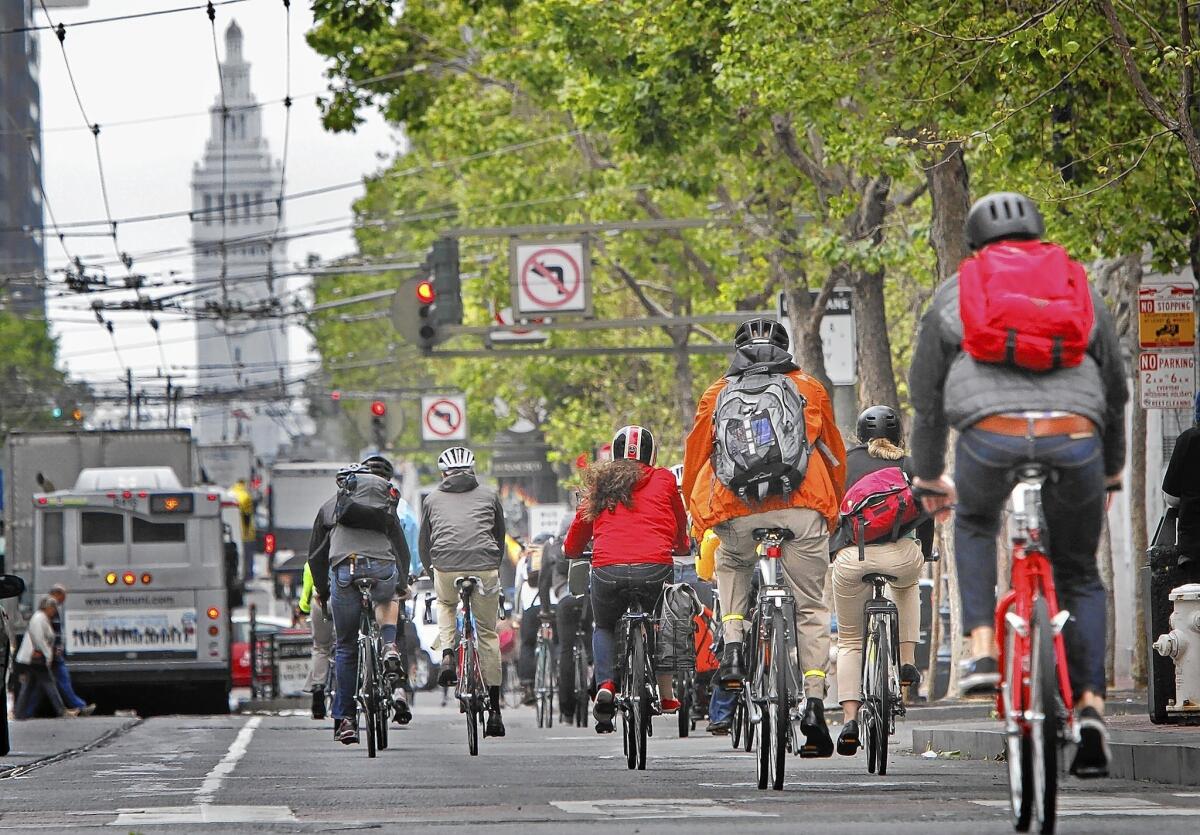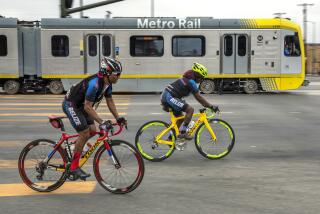Finding ways to make every day Earth Day

I wash 1-quart plastic bags to reuse them. And every time, I wonder if I’m doing the right thing. Am I saving plastic? Wasting water? Just being cheap?
Such questions can take up a lot of brain space these days and create anxiety in surplus as we contemplate our consumption of the Earth’s resources. There’s potential for dozens of quandaries every day: If I drive nine miles to my favorite farmers market, is that OK? Or must I go to the closer one I don’t like as well? Paper or plastic bags? Cloth or disposable diapers? What kind of car? Light bulb? Water bottle? Should I take out the lawn? Put in solar panels?
The first Earth Day, April 22, 1970, marked a call to arms to environmental action. In the ensuing 44 years, it often feels as though the stakes have only grown as millions of people look for solutions large and small.
“Those are some difficult questions,” says Philip Cafaro, a philosophy professor who focuses on environmental ethics at Colorado State University. “For me, it’s very helpful to lock in some big things and not worry about the small ones.
“Maybe it’s more important [that] you are politically active and get better mass transit in your community” than it is that you walk or carpool.
But Cafaro doesn’t neglect the personal. When his family had one car, Cafaro rode a bike to work every day. No decision needed, with the added benefit of increasing his credibility with his students. He and his wife also installed solar panels on their home.
Anna Lappé founded the Small Planet Institute and wrote the book “Diet for a Hot Planet: The Climate Crisis at the End of Your Fork and What You Can Do About It,” a play on the title of her mother Frances Moore Lappé’s bestseller, “Diet for a Small Planet.”
“We really need to call on people to have a deeper conversation about what our values are,” says Anna Lappé, whose focus is food.
She recalled her 4-year-old daughter’s school project to make a poster about how her family helps make the world a better place. “It’s really simple stuff. We’re kind to each other. We care about plants and animals. It’s simple, yet it’s so profound and so true. And those can be clear guiding values.”
Using those values, she says, “that’s really the lion’s share of what we would need to do around food” to improve human and environmental health. At her Northern California home, her family gets produce and fish from a community-supported agriculture project and farmers markets. They eat as low as possible on the food chain, she says.
Gina Garcia, residential greening program director at Sustainable Works, an environmental education organization in Santa Monica, draws a connection from personal choice to political action. “If you are not making those choices ... you will not be the person who gets active to make change. That’s where it all starts.”
But she counsels people not to have aspirations that can’t be met. If, for instance, your biggest use of resources results from your commute to work, you may just have to accept that and look to other areas of your life to be environmentally conscious.
For example, Garcia says, parents used to bring cases of water to her daughter’s soccer games. Over time that’s evolved: Most of the girls now bring reusable bottles.
Each step, she says, “does inspire you into more and more action. Once you start, you keep adding to what you are doing.” (For the record, she drives an electric car and has even stopped using plastic liners in her garbage pail.)
In its seminars, Sustainable Works asks people to become aware of their water and energy use, waste production, shopping and food habits. And then to consider making changes. Turn off the water while brushing your teeth. Take shorter showers, or eat less beef. (It takes 2,500 gallons of water to produce a pound of beef, Garcia says.) Switch out incandescent light bulbs. Drive less.
More long-term — and more expensive — steps might be solar panels, an electric car, a gray water system.
It’s clear that these decisions are based at least as much on values as on science.
When my husband and I renovated our house, we installed solar panels that should pay off in a decade or so. But we also put in a gray water system that probably won’t pay off in our lifetimes. Nonetheless, it seemed wrong to waste water that could feed our plants. We belong to a community-supported agriculture program and know the values and habits of “our” farmer, Phil McGrath. We compost.
And we fall short all the time. We mean to bring our own containers to Chinese restaurants for leftovers, the way our good friend Howard always does. But often we forget.
Is it important to figure out all the costs and consequences of each of these decisions? Is it even possible to consider all the relevant points?
If you buy a Prius, says Mark Sagoff, an environmental philosophy professor and director of the Institute for Philosophy and Public Policy at George Mason University, you may lower your own demand for petroleum but make it more affordable for others to buy gasoline — a situation economists call the Jevons paradox. The same could occur if you stop eating endangered bluefin tuna, he says.
David Glidden, a philosophy professor at UC Riverside, suggests our consumption consciousness might be raised by looking to Buddhist notions of mindfulness. As you peel a tangerine, he says, “think of all the resources that went into making that tangerine. Sun, water. ... As you eat each segment, think of all the people who labored to bring it to your table. If you do this, you will eat more slowly and consequently consume less.”
In the meantime, I’ll probably keep washing those plastic bags. As Cafaro says, “It’s important to feel that we are acting with integrity. And important to act with integrity.”
More to Read
Sign up for The Wild
We’ll help you find the best places to hike, bike and run, as well as the perfect silent spots for meditation and yoga.
You may occasionally receive promotional content from the Los Angeles Times.







